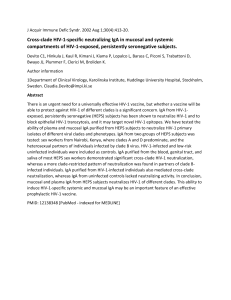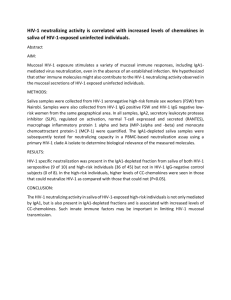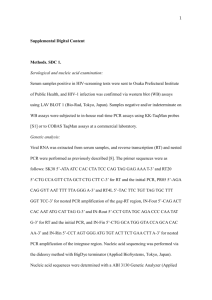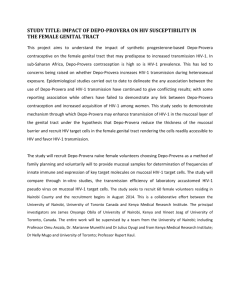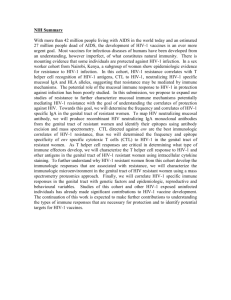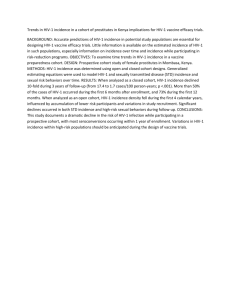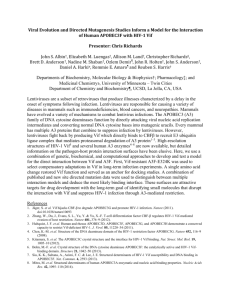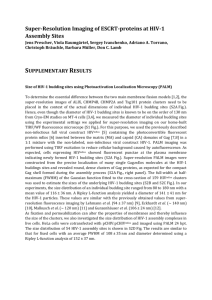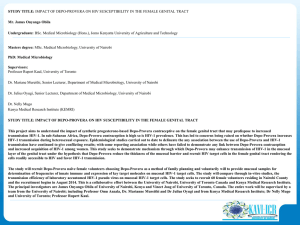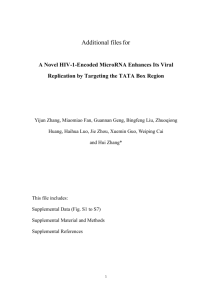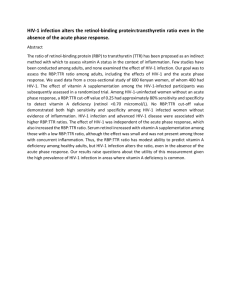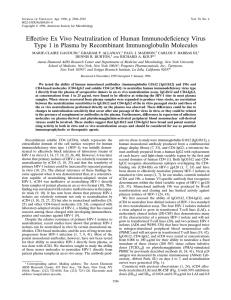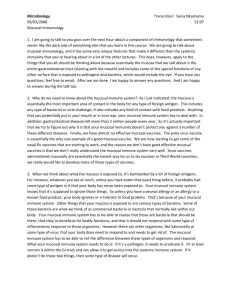Mucosal and plasma IgA from HIV-1-exposed uninfected individuals
advertisement
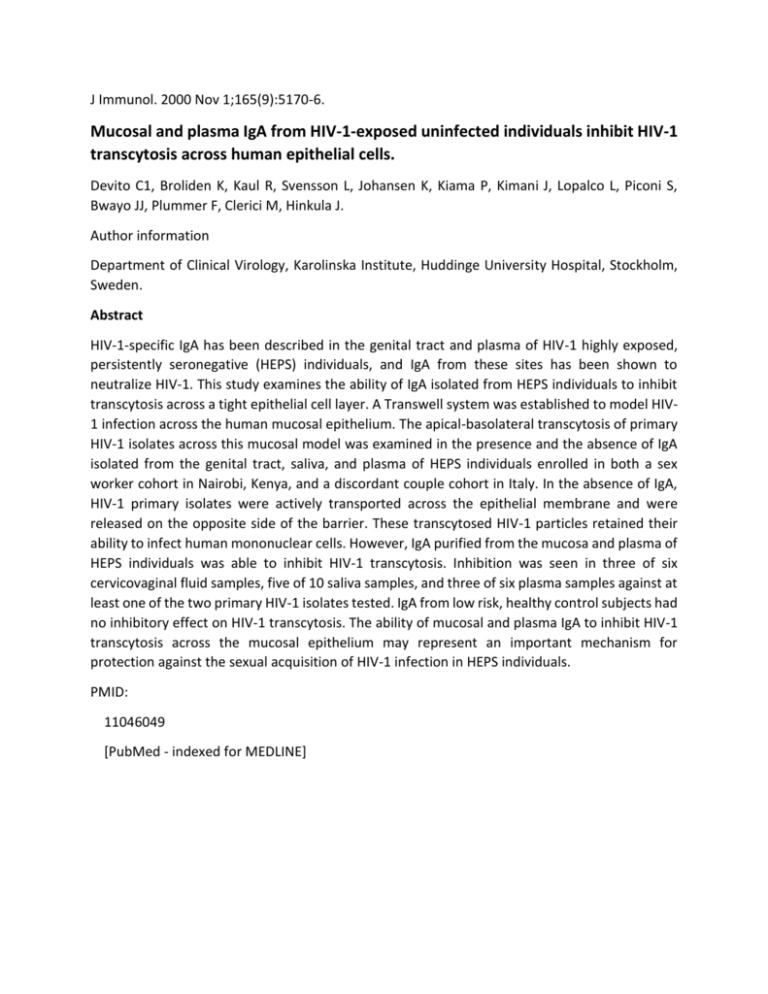
J Immunol. 2000 Nov 1;165(9):5170-6. Mucosal and plasma IgA from HIV-1-exposed uninfected individuals inhibit HIV-1 transcytosis across human epithelial cells. Devito C1, Broliden K, Kaul R, Svensson L, Johansen K, Kiama P, Kimani J, Lopalco L, Piconi S, Bwayo JJ, Plummer F, Clerici M, Hinkula J. Author information Department of Clinical Virology, Karolinska Institute, Huddinge University Hospital, Stockholm, Sweden. Abstract HIV-1-specific IgA has been described in the genital tract and plasma of HIV-1 highly exposed, persistently seronegative (HEPS) individuals, and IgA from these sites has been shown to neutralize HIV-1. This study examines the ability of IgA isolated from HEPS individuals to inhibit transcytosis across a tight epithelial cell layer. A Transwell system was established to model HIV1 infection across the human mucosal epithelium. The apical-basolateral transcytosis of primary HIV-1 isolates across this mucosal model was examined in the presence and the absence of IgA isolated from the genital tract, saliva, and plasma of HEPS individuals enrolled in both a sex worker cohort in Nairobi, Kenya, and a discordant couple cohort in Italy. In the absence of IgA, HIV-1 primary isolates were actively transported across the epithelial membrane and were released on the opposite side of the barrier. These transcytosed HIV-1 particles retained their ability to infect human mononuclear cells. However, IgA purified from the mucosa and plasma of HEPS individuals was able to inhibit HIV-1 transcytosis. Inhibition was seen in three of six cervicovaginal fluid samples, five of 10 saliva samples, and three of six plasma samples against at least one of the two primary HIV-1 isolates tested. IgA from low risk, healthy control subjects had no inhibitory effect on HIV-1 transcytosis. The ability of mucosal and plasma IgA to inhibit HIV-1 transcytosis across the mucosal epithelium may represent an important mechanism for protection against the sexual acquisition of HIV-1 infection in HEPS individuals. PMID: 11046049 [PubMed - indexed for MEDLINE]
